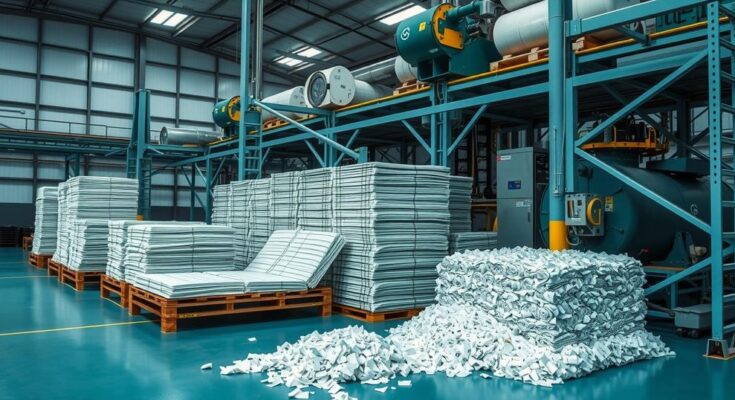Brazil’s paper and pulp industry is poised for compliance with the EU’s deforestation-free product regulation (EUDR), set to take effect in late 2025. The sector, which has traced its supply chains for decades, may incur increased costs due to necessary investments in blockchain technology. The postponement of the regulation has drawn mixed reactions, with industry representatives supporting the delay for better implementation, while experts warn of urgent environmental repercussions. Companies like Suzano exemplify commitment to sustainable practices and compliance, underscoring the importance of transparency in the supply chain.
Brazil’s paper and pulp industry remains unconcerned about the impending European Union’s deforestation-free products regulation (EUDR) effective late 2025, owing to its longstanding practices of tracing supply chains from production to factory. While the industry does not source from illegally deforested areas, compliance with specific EUDR requirements necessitates investment in blockchain technology, possibly raising pulp production costs by up to $230 per ton, impacting operational expenses. The Brazilian Tree Industry (Ibá) acknowledges that while adjustments will not alter business models, they demand increased production costs between $40 and $230 per ton.
Initially slated to start in January 2023, the EUDR has been postponed, a decision met with mixed reactions from industry stakeholders and experts. Ibá views the delay as an opportunity for smoother implementation and resolution of inconsistencies highlighted by the EU Commission. However, deforestation experts argue that postponement is detrimental, emphasizing the urgency of combating illegal logging before environmental degradation exacerbates the climate crisis.
Brazilian exports of pulp to the EU, essential for various products including tissue paper, total approximately 4.4 million tons annually. The sector cultivates trees on 10.2 million hectares, contributing to the preservation of 6.9 million hectares of native forest. Ibá asserts that these sustainable practices have established a strong traceability framework, ensuring that all products entering the supply chain are monitored effectively.
Leading companies like Suzano Papel e Celulose exemplify adherence to environmentally responsible practices, having already initiated advanced forest management for years. They are developing in-house blockchain solutions to efficiently handle compliance documentation while implementing measures to ensure that all raw materials sourced adhere strictly to regulations. Suzano’s practices are supported by rigorous documentation and tracking protocols to minimize risks associated with illegal sourcing.
Despite positive industry movements, the postponement of the EUDR raises concerns about accountability regarding land use and compliance verification processes. Experts contend that Brazil must enhance its mechanisms for controlling deforestation to avoid a classification as a high-risk category. Continued efforts toward sustainable forestry and higher standards will be essential to protect Brazil’s forest resources and align with international trade standards.
Schneider from the World Resources Institute suggests that businesses treat compliance with evolving regulations like the EUDR as an intrinsic operational cost. This acknowledgment can facilitate better preparedness in meeting stringent sustainability standards, which are becoming increasingly prevalent worldwide.
Moreover, transparency and adherence to international certifications will not only aid in regulatory compliance but will also enhance Brazil’s reputation in global markets. The commitment to sustainable practices must remain an unwavering priority as the industry evolves to meet new challenges posed by changing legislation.
In recent years, the European Union has taken significant steps to address environmental concerns, particularly regarding deforestation linked to commodity imports. The EUDR is part of the EU’s broader strategy to promote sustainability and ensure that products entering its markets do not contribute to illegal deforestation. Brazil’s paper and pulp industry is a key player in this context, as the country is a significant exporter to the EU and possesses extensive forestry operations. With a history of supply chain tracing, the Brazilian sector is preparing to adapt to EUDR requirements while maintaining its commitment to sustainable practices.
In conclusion, Brazil’s paper and pulp industry is strategically preparing to comply with the EUDR despite the postponement of its implementation. While there are challenges ahead regarding increased production costs and adjustments for enhanced traceability, industry leaders emphasize their longstanding commitment to sustainability and transparency. The necessity for further action against illegal deforestation remains urgent, underscoring the importance of balancing operational compliance with environmental stewardship to safeguard both market interests and ecological integrity.
Original Source: news.mongabay.com




